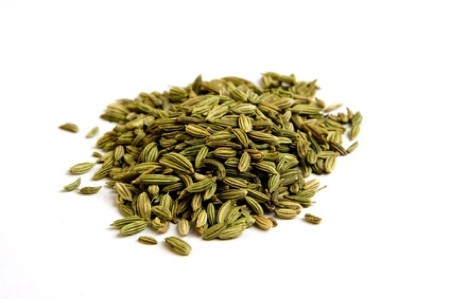By Nadia Marshall
What are fennel seeds?
Fennel seeds come from the fennel plant - a hardy, perennial herb with yellow flowers and feathery leaves. Fennel is Indigenous to the shores of the Mediterranean but grows widely throughout the world on dry soils near the sea and on riverbanks. Fennel is widely cultivated for its seeds, leaves and bulb. The aniseed taste in fennel seeds comes from anethole, an aromatic compound also found in anise and star anise.
What are their qualities?
From an Ayurvedic perspective (1), fennel seeds have the following qualities...
Rasa: Sweet, Pungent, Bitter
Virya: Heating (a little)
Vipaka: Sweet
Qualities: Delicate, light
Actions on the doshas: Balances Vata, Pitta & Kapha
What are their medicinal qualities?
From an Ayurvedic perspective, fennel seeds are considered one of the best medicines for any digestive upsets. They can be used to treat digestive discomfort, flatulence, cramps, nausea and low agni or dull digestion/metabolism. Fennel is also good for relieving nervous tension in the muscles and it tonifies the brain and nervous system. It can also assist with urinary problems, lung congestion, menstrual difficulties and the production and flow of breast milk.
The Western viewpoint.
Fennel seeds have a variety of biomedical actions. They are carminative (relieve flatulence - for both humans and dogs), diuretic, anti-spasmodic, galactagogue (induce milk secretions), expectorant and anti-tussive (allieviate coughs) (1). Although not a great deal of formal research has been carried out on fennel, it has been recognised in scientific trials as an effective treatment for colic in breast-fed infants.
How do you eat them?
We use fennel in our cooking all the time - from sweet porridges (e.g. Poha Porridge) through to savoury curries. We use it as a whole seed but also as a finely ground powder, depending on the recipe. We also use it in a wide variety of cultural dishes - from Italian to Indian. If suffering from indigestion, we might chew on a tsp of roasted fennel or drink some fennel tea.... and I always add fennel to my doggy’s dinner!
Why do I love them?
I love their instant calming effect on my digestive system. If I’ve eaten a meal with fennel in it, I know I’m not going to suffer from any kind of gaseous indigestion. I also love that Fennel is getting my Vata moving in the right direction and helping to enkindle my Agni without aggravating my Pitta, due to its sweet post-digestive effect.
Should anyone avoid eating them?
Fennel seeds are very safe and appropriate for all constitutions so from an Ayurvedic perspective, noone should avoid eating them (1).
But according to www.webmd.com, fennel may have a moderate interaction with birth control pills, ciprofloxacin, estrogen pills and tamoxifen - potentially decreasing their effectiveness. If you take any of these drugs, you may want to seek medical advice.
Where do you get them from?
We buy our organic fennel in bulk from www.herbsupplies.com.au. But, you can pick up good quality fennel seeds from most wholefood and health food stores. It is best to buy the whole seeds and grind them in a spice grinder as necessary.
Tell me about your experience with fennel... and why you love it! xx
Love
Nadia x
(1) “Ayurvedic Medicine: The Principles of Traditional Practice”, Sebastian Pole
(2) http://en.wikipedia.org/wiki/Fennel

Fennel Seeds: The Ayurvedic Perspective
AYURVEDIC TERMINOLOGY
Agni - the digestive fire.
Ama or Aama - undigested food waste, toxins.
Ojas- the foundation of our immune system and longevity.
Dhatus - the tissues of the body.
Srotas - the channels of the body.
Vata - the air/ether
intelligence in the body.
Pitta- the fire/water
intelligence in the body.
Kapha- the water/earth intelligence in the body.
Sattva- the quality of purity, intelligence, peace and love.
Rajas- the quality of
turbulence and activity.
Tamas- the quality of
dullness, darkness and inertia.
Rasa - the taste of a food (Sweet, Sour, Salty, Pungent, Bitter, Astringent)
Virya - second level of digestion (either Heating or Cooling)
Vipaka - third level of digestion, the deep taste of a food (can be Sweet, Sour or Pungent)
Prabhav - the 'special effect' of a food or herb/spice
Rasa - also the name for plasma tissue
Rakta - blood tissue
Mamsa - muscle tissue
Meda - fat tissue
Asthi - bone tissue
Majja - nerve & bone marrow tissue
Shukra - sexual reproductive tissue


